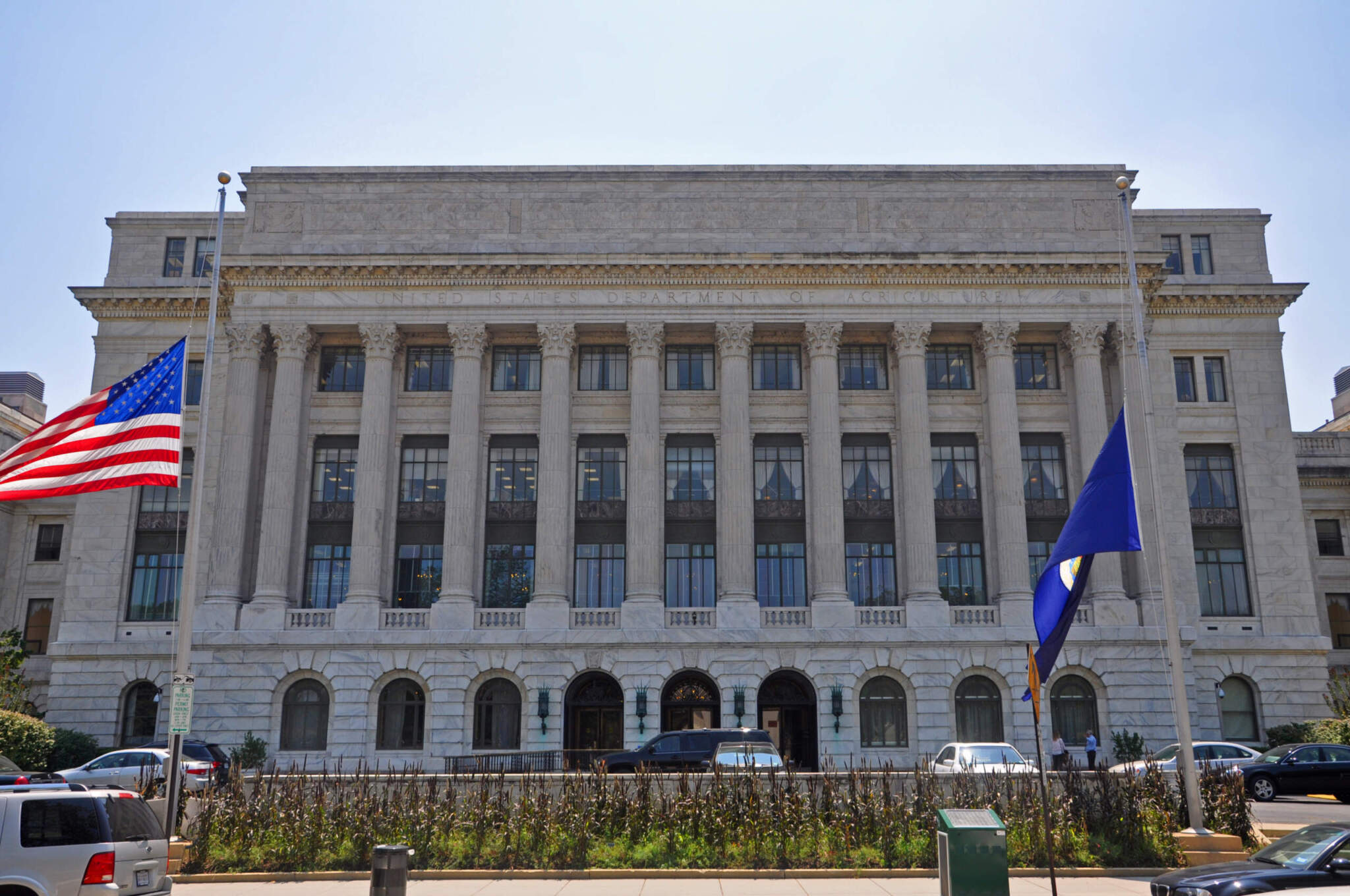For Immediate Release: March 7, 2024
Contact: R-CALF USA CEO Bill Bullard
Phone: 406-252-2516; r-calfusa@r-calfusa.com
Please find below R-CALF USA’s weekly opinion/commentary that discusses the recently announced final rule that helps to properly implement the Packers and Stockyards Act. It is in three formats: written, audio and video. Anyone is welcome to use it for broadcasting or reporting.
Awaited Rule, Part 1
Commentary by Bill Bullard, CEO, R-CALF USA
R-CALF USA has worked closely with the past three Administrations to encourage them to write the rules and regulations needed to properly implement and enforce the over 100-year-old Packers and Stockyards Act.
Specifically, we asked for rules and regulations to implement and enforce the provisions in the Packers and Stockyards Act that make it unlawful for meatpackers to engage in unfair, deceptive or unjustly discriminatory practices; or to give any undue or unreasonable preferences or advantage to a particular person; or to subject any particular person to any undue or unreasonable prejudice or disadvantage.
The Obama Administration began the process of writing rules, but the multinational meatpackers and their allies stopped the process by convincing Congress to include language in the omnibus appropriations bill that prohibited the U.S. Department of Agriculture (USDA) from expending any money for the purpose of finalizing the rules. We call that language included in the appropriations bill a “rider.” After Congress passed the rider, the rule-writing process was effectively ended.
We then asked the Trump Administration to write the rules and regulations needed to implement and enforce the Packers and Stockyards Act but the only rule that was written addressed the prohibition against the packers’ granting an undue or unreasonable preference or advantage to a particular person. And that rule was a huge disappointment as we view it as providing the multinational meatpackers with a series of “safe harbors” they could stand behind if any producer were to allege that the packers were offering preferences to the packers’ preferred feedlots and not to all feedlots.
We made a third run at obtaining the needed rules through the Biden Administration, and the Biden Administration agreed to write them, but the process has been painstakingly slow. The Biden Administration just finished one of the needed rules and it will become effective this spring. At least one more rule has been proposed and it is currently under review by the White House Office of Management and Budget.
Now the multinational meatpackers and their allies attempted to stop the Biden Administration’s rule writing just as they had successfully done back under the Obama Administration. But this time cattle producers from across the nation urged Congress to reject the meatpacking lobby’s rider, and Congress did. They removed the rider that had been included in this year’s omnibus appropriations bill. So, the rule-writing process continues.
The rule that will soon become effective is titled, Inclusive Competition and Market Integrity Under the Packers and Stockyards Act. Here’s what this new rule does:
Regarding unjust discrimination: It clarifies that the Packers and Stockyards Act prohibits packers from engaging in practices that prejudice, disadvantage, or inhibit market access for independent livestock producers based on their race, color, religion, national origin, sex, disability, marital status, age, or on the basis of a producer being a cooperative entity.
Here are examples of prohibited practices that prejudice, disadvantage, or inhibit market access if based on those characteristics I just mentioned:
If a packer offers contract terms to a livestock producer that are less favorable than those offered to similarly situated livestock producers.
If a packer refuses to deal with a livestock producer on terms offered to similarly situated livestock producers.
If a packer enforces a contract with a livestock producer differently than with similarly situated livestock producers.
And, if a packer requires a livestock producer to modify or renew a contract under terms less favorable than for similarly situated livestock producers.
The new rule also prohibits packers from retaliating against all livestock producers when, for example, they communicate with a government entity or official to ask them to address problems they may have regarding their industry; or when they assert their right to join or refuse to join a grower association; or when they communicate or cooperate with a person for purposes of improving the production or marketing of their products.
The rule also prohibits retaliation in the form of a packer interfering in a farm real estate transaction or a contract with third parties. And the rule requires packers to keep records relevant to their compliance with the rule for five years.
And, lastly, the new rule prohibits packers from engaging in deceptive practices such as making, modifying, performing or enforcing a contract by employing false or misleading information or omitting material information. Nor may a packer terminate a contract with a livestock producer by employing a false or misleading statement or omission of material information.
In summary, this new rule provides clarification and clarity as to what constitutes violations under the Packers and Stockyards Act regarding practices considered retaliatory, deceptive, and unjustly discriminatory. Importantly, this rule will be followed by another rule that will soon be proposed and that is expected to address some of the other key prohibitions contained in the Packers and Stockyards Act.
We fully expect that this new rule will begin to reshape, reform, and rebalance the disparate bargaining positions between widely disaggregated livestock producers and the highly concentrated meatpackers.
With that said, we fully expect the next rule to rebalance that disparity even more.
###
R-CALF USA’s weekly opinion/commentary educates and informs both consumers and producers about timely issues important to the U.S. cattle and sheep industries and rural America.
Ranchers Cattlemen Action Legal Fund United Stockgrowers of America (R-CALF USA) is the largest producer-only trade association in the United States. It is a national, nonprofit organization dedicated to ensuring the continued profitability and viability of the U.S. cattle and sheep industries. For more information, visit www.r-calfusa.com or call (406) 252-2516.






